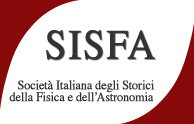Speaker
Description
The standard belief is that the expanding universe was discovered by Edwin Hubble in 1929. Important historians of cosmology (H. Kragh, R. Smith, S. Bergia, C. O’Raifeartaigh) have recently underlined that the question is more complicated, and Hubble cannot reasonably be credited with this discovery: his measurements only provided the first experimental evidence in support of the hypothesis of an expanding universe, as a linear relation between the redshifts and distances of galaxies does not in itself imply an expansion. On the other hand, Hubble never claimed to have discovered it: his general agnostic attitude was that of a cautious empiricist; thus, he did not deny that the universe expands, but neither was he convinced that it does expand. The same happened in early 1965 when Arno Penzias and Robert Wilson measured an isotropic radiation but did not discover a fossil radiation from the Big Bang: that observation became an actual discovery only when Robert Dicke provided a valid theoretical context within which a primordial universal radiation acquired meaning. In short, observation/measurement and discovery should not be confused: the former might imply the latter only when a theoretical background provides valid reasons to explain that observation. My contribution aims to reflect on this subtle difference, in light also of a distinction by Bergia, according to which observations of a cosmological nature might assume a cosmological value (thus a relevance for the entire universe) only after accepting specific physical clauses, laws, or hypotheses.

